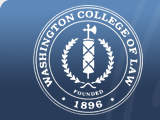Abstract
The Supreme Court in NCAA v. Alston determined that the NCAA’s education-related compensation restrictions violated § 1 of the Sherman Act. The Court, however, did not scrutinize the legality of the NCAA’s athletic-related compensation restrictions, begging the question: when will the Supreme Court, if ever, stop presuming the validity of the NCAA’s athletic-related compensation restrictions because they allegedly ensure that college athletics remain amateur?
This Comment examines this question in further detail by cataloging the Court’s antitrust jurisprudence involving § 1 compensation challenges and what this jurisprudence may spell for future litigation in a college athletics landscape increasingly defined by name, image, and likeness (NIL).
This Comment argues that the Court should reject the presumption of validity it has historically accorded to the NCAA’s compensation restrictions. By characterizing this presumption as a noneconomic justification, this Comment suggests that amateurism lacks the requisite economic tether to competition to sustain its viability as a procompetitive defense under the Rule of Reason. Ultimately, this Comment contends that, in future § 1 compensation challenges, the Court should find that the NCAA’s athletic-related compensation restrictions violate the Sherman Act.
Included in
Antitrust and Trade Regulation Commons, Commercial Law Commons, Law and Economics Commons, Litigation Commons

